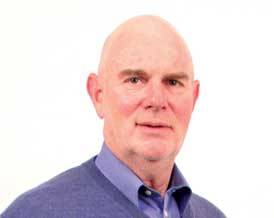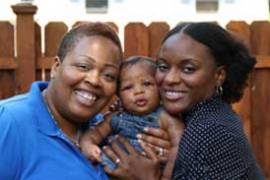
Note From the Executive Director: Eye on the Supreme Court
Blog Search
On a broad range of issues including immigration, HIV, relationship recognition and workplace equality, we at Lambda Legal have had our eyes on the U. S. Supreme Court in recent months—and we have been hard at work. With decisions last month in two high-profile cases in which we participated, and two Lambda Legal cases cued up for possible review next term, never before have we had so much at stake in a short period on the biggest legal stage in the country.
Just last week the U.S. Supreme Court was asked to review two Lambda Legal cases:
We won Golinski v. OPM, our case challenging Section 3 of the so-called Defense of Marriage Act (DOMA), in federal district court. (Section 3 prohibits federal recognition of the marriages of same-sex couples.) We represent Karen Golinski, a lesbian federal employee who had been denied equal health insurance benefits for her spouse. The Department of Justice filed papers seeking Supreme Court review while the Ninth Circuit appeal is pending, and although we won’t know until this fall whether the Court will hear the case, what is clear to all of us is that DOMA’s days are numbered. The last four courts to have considered it have found it unconstitutional. The Department of Justice is also asking the Court to review a separate DOMA challenge, Gill v. OPM.
Diaz v. Brewer is our case defending family health coverage for gay and lesbian employees of the State of Arizona. This case is a matter of equal pay for equal work and protecting medical benefits for the same-sex domestic partners of state employees. The federal district court and the Ninth Circuit Court of Appeals have already ruled that trying to take away this family health coverage violated the rights of these employees who deserve to be treated the same as other state employees. Governor Janice Brewer and other state officials have now appealed these losses to the U. S. Supreme Court. If the Court refuses to hear the case then the preliminary injunction that currently protects state employees will stand and maintain for the case’s duration the health coverage they rely on to safeguard their families’ health. And if the Supreme Court agrees to hear this case, then we will be ready to defend the lower court decisions—and the workers and their families!
As this term ended, the Court issued two important rulings in which we had an important stake:
As advocates of health care reform for over 20 years and champions of the legal interests of people with HIV from the start of the HIV/AIDS epidemic, Lambda Legal wrote a friend-of-the-court brief joined by 16 other HIV advocacy organizations in support of the Affordable Care Act. The Court’s decision upholding the law is an enormous victory for all Americans and has the potential to save the lives of many people living with HIV and to help end the AIDS crisis in this country. Our challenge moving forward will be to ensure full implementation of the ACA—including the expansion of Medicaid in all states—so that most low-income people, and particularly those with HIV, can get the health care they so urgently need.
Lambda Legal also signed on to a friend-of-the-court brief in the constitutional challenge to Arizona’s discriminatory anti-immigrant law. Although the high court struck down many of the key parts of the law last month, the “show me your papers” provision remains. Many of us have experienced hostility, discrimination or violence because our appearance or our actions do not conform to the expectations of others. LGBT people know all too well how people can be targeted because of appearance or stereotypes, and LGBT immigrants will be forced further into the shadows, less willing to seek medical care or police assistance when they need it most. There is work yet to be done to challenge the “show me your papers” provision, and LGBT and immigrant communities must join together—those who oppose fairness for immigrants are often the same as those who oppose fairness for LGBT people. Furthermore, the LGBT community encompasses not only bi-national same-sex couples and LGBT asylum-seekers, but also undocumented LGBT immigrants who are often trapped in a “double closet.”
We are making the case for equality, and moving history forward at a rapid speed.




